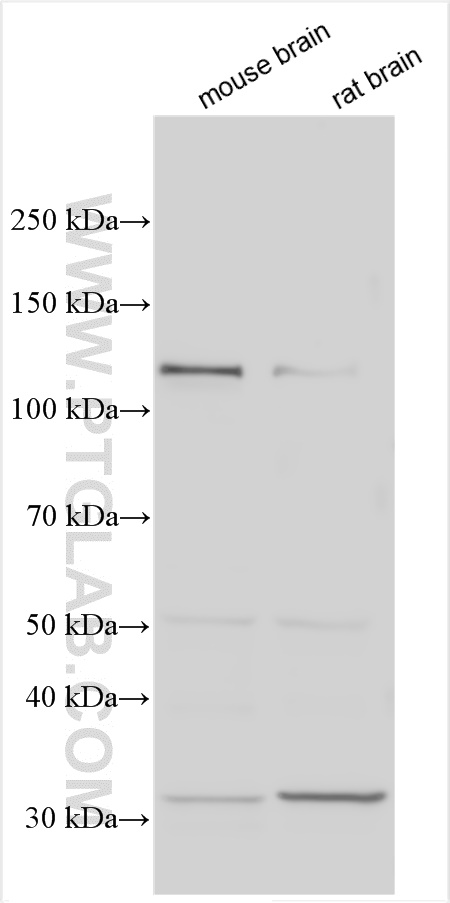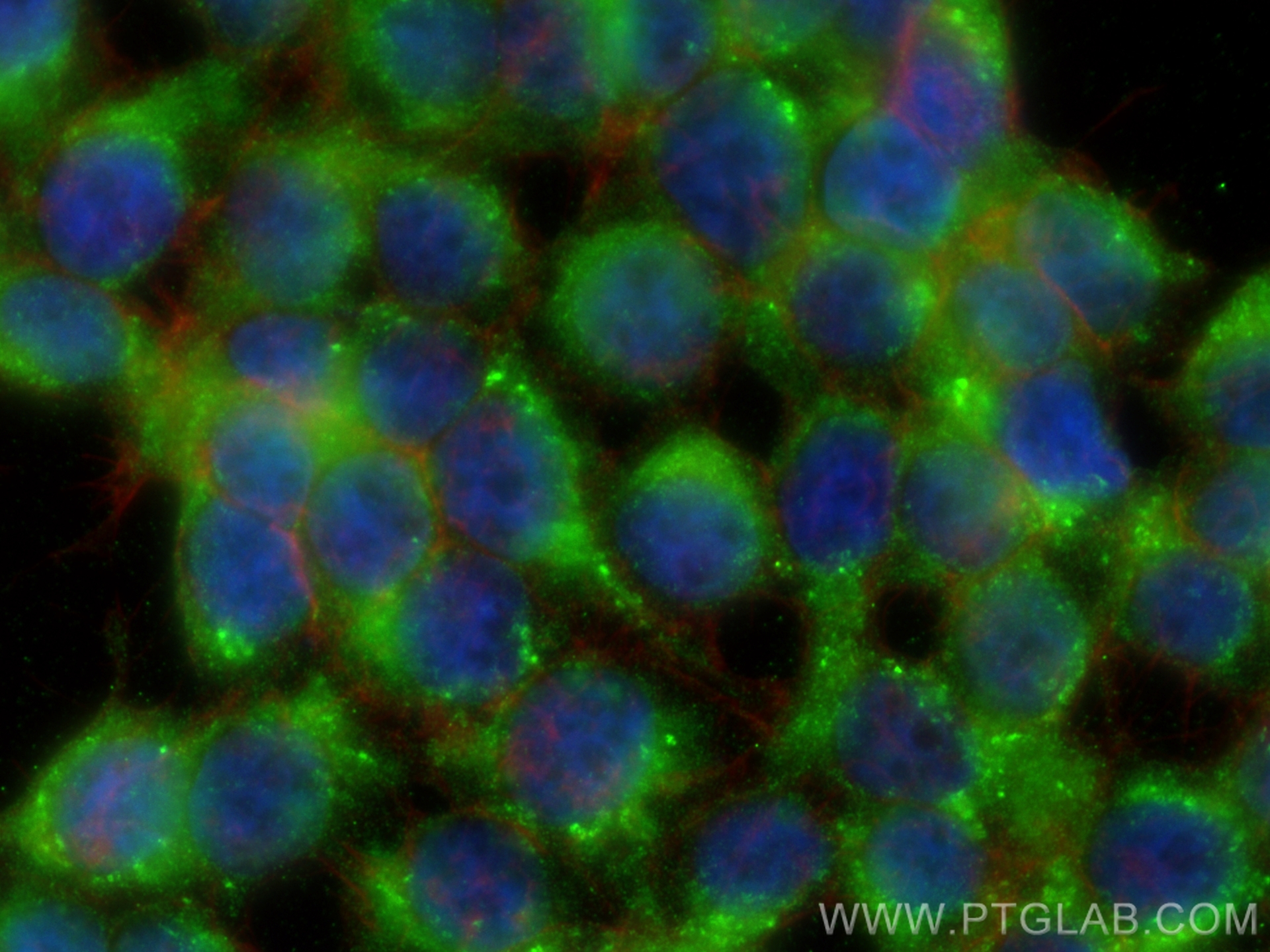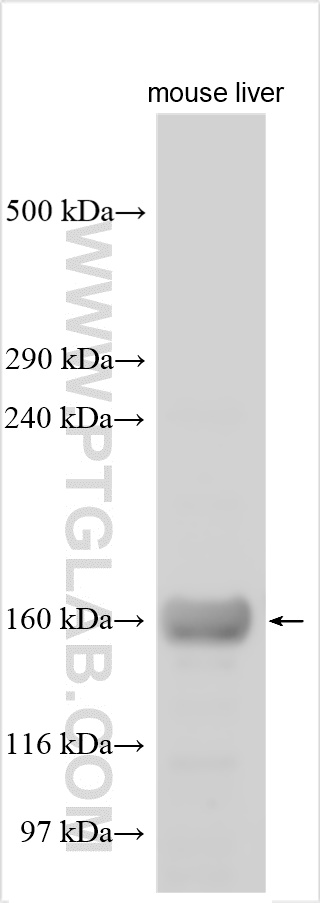验证数据展示
经过测试的应用
| Positive WB detected in | mouse brain tissue, mouse liver tissue, rat brain tissue |
| Positive IF/ICC detected in | HEK-293 cells |
推荐稀释比
| 应用 | 推荐稀释比 |
|---|---|
| Western Blot (WB) | WB : 1:500-1:1000 |
| Immunofluorescence (IF)/ICC | IF/ICC : 1:200-1:800 |
| It is recommended that this reagent should be titrated in each testing system to obtain optimal results. | |
| Sample-dependent, Check data in validation data gallery. | |
产品信息
20719-1-AP targets PCDH15 in WB, IF/ICC, ELISA applications and shows reactivity with human, mouse, rat samples.
| 经测试应用 | WB, IF/ICC, ELISA Application Description |
| 经测试反应性 | human, mouse, rat |
| 免疫原 | Peptide 种属同源性预测 |
| 宿主/亚型 | Rabbit / IgG |
| 抗体类别 | Polyclonal |
| 产品类型 | Antibody |
| 全称 | protocadherin 15 |
| 别名 | DFNB23, PCDH15, protocadherin 15, USH1F |
| 计算分子量 | 216 kDa |
| 观测分子量 | 120 kDa, 50 kDa |
| GenBank蛋白编号 | NM_033056 |
| 基因名称 | PCDH15 |
| Gene ID (NCBI) | 65217 |
| RRID | AB_3085617 |
| 偶联类型 | Unconjugated |
| 形式 | Liquid |
| 纯化方式 | Antigen affinity purification |
| UNIPROT ID | Q96QU1 |
| 储存缓冲液 | PBS with 0.02% sodium azide and 50% glycerol pH 7.3. |
| 储存条件 | Store at -20°C. Stable for one year after shipment. Aliquoting is unnecessary for -20oC storage. |
背景介绍
Protocadherin-15 (PCDH15) belongs to the cadherin superfamily that mediates calcium-dependent cell-cell adhesion and plays an important role in the maintenance of normal tissue architecture. A homozygous variant in PCDH15 results in Usher syndrome type 1F (USH1F) which leads to congenital hearing loss and syndromicretinitis pigmentosa (PMID: 38014037). Multiple isoforms of PCDH15 have been described, including 216-250 kDa (full-length), 150-180 kDa, 100-120 kDa, 50-65 kDa, and 25-40 kDa (PMID: 22363448; 15928608; 14570705; 23035094; 28883094).
实验方案
| Product Specific Protocols | |
|---|---|
| WB protocol for PCDH15 antibody 20719-1-AP | Download protocol |
| Standard Protocols | |
|---|---|
| Click here to view our Standard Protocols |


